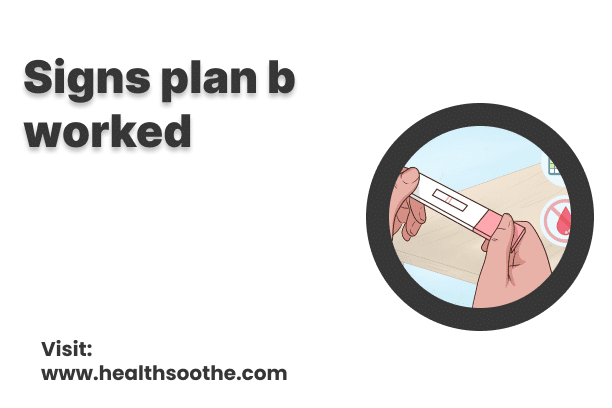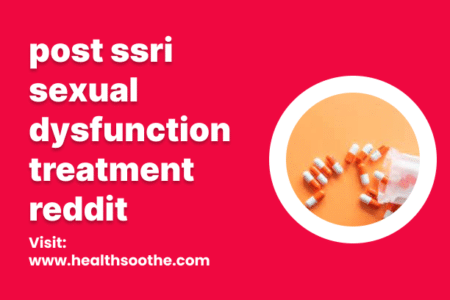Indications that Plan B was ineffective might manifest through early signs of implantation or pregnancy. These signs encompass mild bleeding, fatigue, queasiness, lightheadedness, or an accelerated heartbeat.
Implantation denotes the attachment of a fertilized egg to the uterine lining, commonly occurring around 7 days post-sexual intercourse. However, not everyone experiences symptoms this promptly, and numerous other factors could precipitate these symptoms. Therefore, relying solely on early symptoms is inconclusive for confirming pregnancy.
To ascertain pregnancy, individuals can opt for a home pregnancy test. Typically, accurate results can be obtained after a missed period or 21 days following sexual intercourse.
What are the signs Plan B did not work?
The most dependable indicators that Plan B was ineffective include a missed menstrual period and a positive result on a pregnancy test.
Although some individuals might encounter early pregnancy symptoms, not everyone does, rendering them an unreliable measure of emergency contraception failure.
Early signs of pregnancy that individuals might encounter include:
- Light spotting in lieu of a menstrual period
- Alterations in vaginal discharge, particularly if it deviates from the norm
- Nausea
- Dizziness
- Increased heart rate
- Heightened frequency of urination
- Fatigue
However, the presence of these symptoms doesn’t definitively signify pregnancy, as they could be attributed to other conditions. Conversely, their absence doesn’t necessarily rule out pregnancy.
How soon can you tell?
Confirmation regarding the effectiveness of Plan B can only be attained through a pregnancy test.
Following implantation, the body initiates the production of human chorionic gonadotropin (hCG), a pregnancy hormone detected by home pregnancy tests.
Implantation typically transpires approximately 7 days post-fertilization, triggering a rapid escalation in hCG levels.
In general, individuals can expect a positive pregnancy test result around the time of a missed period or, if uncertain about their menstrual cycle, 21 days subsequent to sexual activity.
Read Also: Adolescent Drug Addiction Signs: Early Detection
How rare is it for Plan B to fail?
Plan B demonstrates high efficacy when taken within 72 hours after sexual intercourse without a barrier method. Its effectiveness increases with prompt administration.
The mechanism of Plan B involves the inhibition of ovulation, thereby hindering sperm from fertilizing an egg. Early utilization maximizes its potential effectiveness by reducing the likelihood of ovulation and making implantation less feasible if ovulation occurs.
According to manufacturer tests, Plan B One-Step successfully prevented 84% of pregnancies. Normally, within the study group of 1,198 females, the pregnancy rate would approximate 8%, yet Plan B One-Step reduced it to approximately 1%.
Pros and Cons of plan b
Pros:
- Emergency Contraception
- Effectiveness
- Availability
- No Long-term Effects
Cons:
- Effectiveness Decreases Over Time
- Not 100% Effective
- Side Effects
- Does Not Protect Against STIs
Differences Between plan b and Lupron
Plan B:
Plan B contains levonorgestrel, a synthetic hormone that works primarily by preventing ovulation (the release of an egg from the ovary).
Lupron:
Lupron contains leuprolide acetate, a hormone analog that works by suppressing the production of certain hormones such as testosterone or estrogen.
Alternative to plan b
Regular Birth Control Pills:
Some regular birth control pills can be used as emergency contraception if taken in specific doses within 72 hours of unprotected intercourse. This method involves taking a combination of certain birth control pills containing levonorgestrel or ethinyl estradiol and levonorgestrel.
Why can Plan B fail?
Several factors can contribute to the failure of Plan B:
- Ovulation: If ovulation occurs before taking Plan B, it may not be effective in preventing pregnancy.
- Weight: Studies suggest that Plan B might be less effective in individuals with a BMI over 30. While there’s no official weight limit, effectiveness may decrease in individuals with larger bodies.
- Vomiting: If vomiting happens within 2 hours of taking Plan B, the dose may need to be repeated.
- Drug Interactions: Certain medications and supplements like St. John’s wort, barbiturates, and topiramate may affect the efficacy of Plan B.
- Timing: Plan B is most effective when taken promptly after unprotected sex. Waiting longer than 72 hours reduces its effectiveness.
- Pregnancy: Plan B is not an abortion pill and cannot terminate an existing pregnancy.
- Alternatives: Ulipristal may be more effective for individuals with a BMI over 25 or who weigh over 165 pounds, according to a 2019 study.
- Food: There is no known research indicating that specific foods affect the efficacy of Plan B.
What are the chances of pregnancy?
Pregnancy isn’t guaranteed after unprotected sex, even without the use of Plan B. Recent research conducted in 2022, not yet published, indicates that spontaneous unprotected intercourse carries an approximate pregnancy rate of 18%.
Timed intercourse, where intercourse aligns with ovulation, demonstrates a pregnancy rate of 20–28%.
Emergency contraception reduces the likelihood of pregnancy. A 2019 study involving 1,000 females in Japan who sought emergency contraception revealed that only 16 participants, constituting 2.4%, were pregnant upon follow-up.





